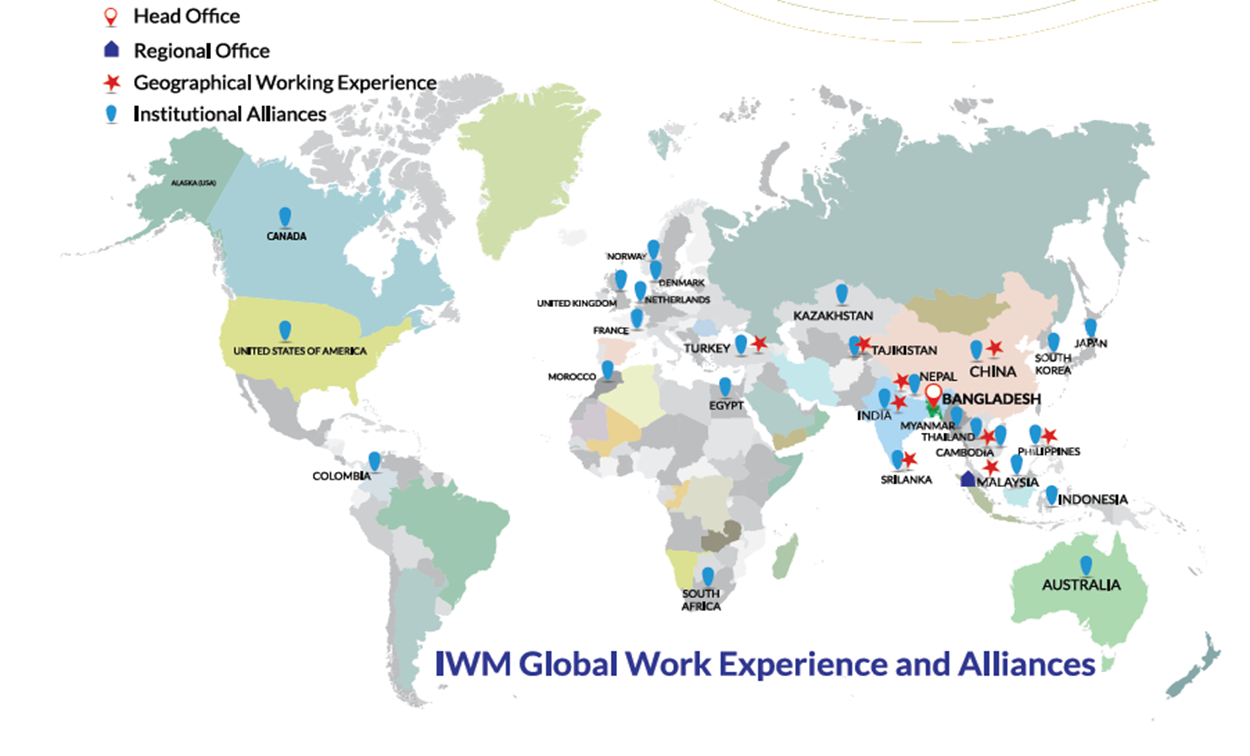
Water Environment, Climate & ICT
For Green and Climate Resilient Development

For Green and Climate Resilient Development
IWM is a self-sustained and not-for-profit independent Trust established in 1996 by the GoB. IWM service includes but not limited to Policy Support, Capacity Building, Research and Innovation, Development Advisory and Consultancy Services. IWM is a unique organization in Bangladesh that provides world class services in the fields of Water resources management, Water supply, Sewerage and Urban drainage management, Coast, port & estuary management, Flood Management, Irrigation Management, Survey and data, ICT and GIS and River Engineering for improved and sustainable Water Resources Management leading to Green Climate. IWM operates under the guidance of the Board Of Trustees (BOT). The Secretary of the Ministry of Water Resources is the Chairperson of the BOT. IWM is ISO certified institute. IWM has been awarded and successfully completed hundreds of projects in Bangladesh. Besides the institute has expanded its services to Malaysia, India, Nepal, Sri Lanka, Tajikistan, Turkey, Philippines and USA.









You are welcome to visit IWM physically. If you have any comments or queries you can submit below.
IWM BHABAN, House 06, Road 3C, Block H, Sector 15, Uttara, Dhaka 1230, Bangladesh
Phone: 880-2-55087611-4
Fax: 880-2-55087615
880-2-55087611
iwm@iwmbd.org